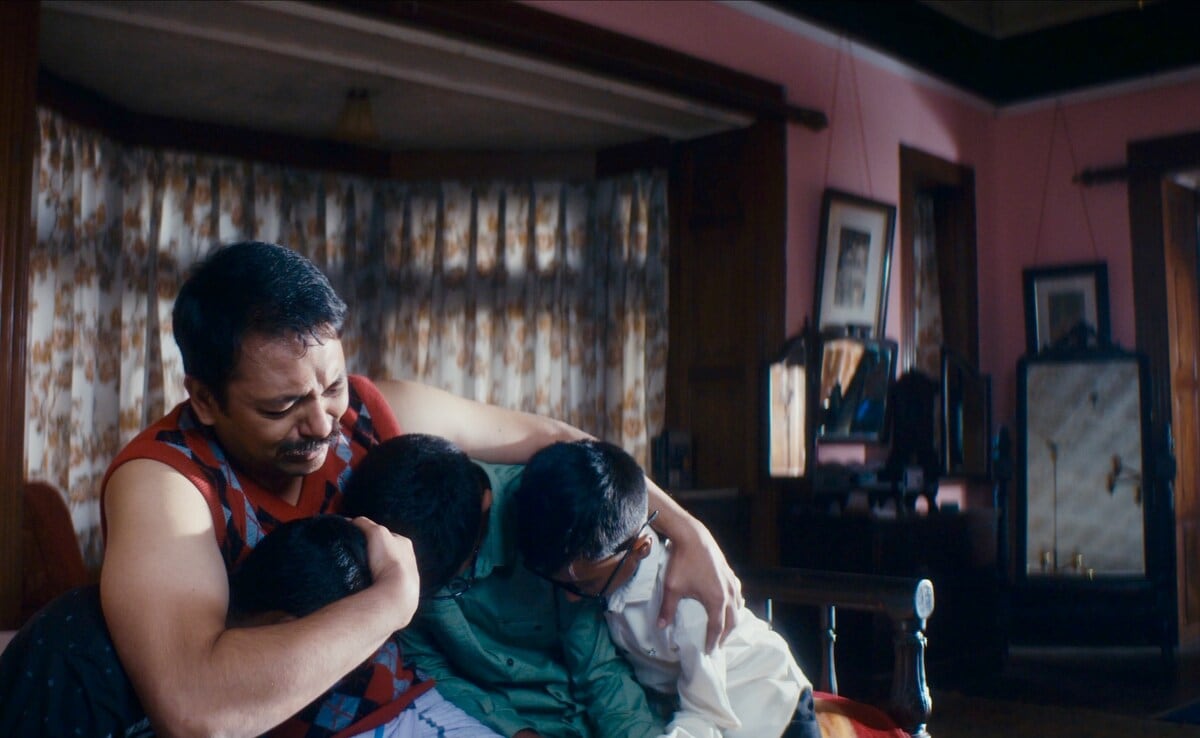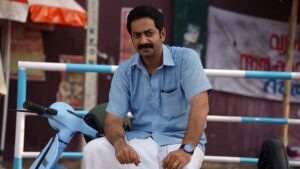The unexpected yet deeply moving film hits home with unprecedented force

Epic in length – its runtime is around four and a half hours – but focused on the minutiae of the lives of three boys and their overly strict father, Nangal (This is us) is an exceptional piece of cinema. To call it a piece of anything would be a bit of an understatement – it’s much bigger than that.
Nangal – the Tamil film is part of the Asian Cinema Competition at the ongoing 15th Bangalore International Film Festival – is a fascinating and vivid collage of myriad pieces of memory, mostly rendered in the form of stunning images, unsettling, juxtaposed and underwired by a magnificent background score. strung together with impressive skill and imagination.
Written, directed, filmed and edited by Avinash Prakash, Nangal Have the look of a job directed by a seasoned director. But this is a debut film. A deeply personal essay, its length warrants comment. What is important is that the time that Nangal takes to tell the story of nearly a decade seems entirely justified. Growing up is never easy especially when home isn’t what it’s meant to be – sweet home
Opening with a title card that refers to the Welsh concept of Hereth, Nangal Explains it as homesickness for a home that you can’t go back to or that never existed. It tells the semi-autobiographical story of the director’s own childhood spent in an estate in Ooty in a home without real lasting happiness.
The focus is on the three siblings. How things turn out for them depends entirely on their task master-father who makes no concessions for any transgression. Madhu slaps one of the boys for buying candy. Another was hurt because he failed all six of his subjects.
There is no room for missteps in this suffocating world. One said: Education is freedom, freedom of thought. father in Nangal That idea may pay lip service, but it comes to practice. That’s the last thing he won’t believe.
With a cast of newcomers who completely blend into the atmosphere of the film, Nangal It’s an affecting portrait of a father who is sure he means well. He loves his three sons so much that he has no qualms about inflicting emotional wounds on them in an effort to discipline them and prepare them for life’s challenges.
The father, Rajkumar (Abdul Rafe) adopts a ruthless method of parenting. But he is nothing but a monster. He, rarely, expresses remorse or remorse for being overly strict. Give me another chance, I will bring back your childhood, he told the boys in a moment of ‘weakness’. But does he really mean it?
His failure as a man, a father and an entrepreneur affects the way he deals with his sons- Karthik (Mithun V), Gautham (Nithin D.) and Dhruv (Hritvik M.). She alternates between suffocating anxiety and utter depravity, leaving her children in constant terror.
The father’s fear is accentuated by the setting – a bungalow in the mountains without running water or electricity. Rajkumar has not been able to pay the bills for several months. On dark nights, there are flashes of lightning and lightning that rattle windows and send dark streaks of light into houses. Two siblings play practical jokes on a third who cowers in the shadows.
But there is no one that boys fear more than their fathers. It is spoken in hushed tones. We see the person reflected in a mirror or obstructed by an object. Even though we don’t see her, she stares at the house and every time she speaks, the boys get scared.
Alternating between color and black and white and filmed entirely in natural light, Nangal Set in 1990. The boys’ mother Padma (Prathana Srikanth) is not around. The reason for his absence is revealed as the film unfolds with a pace and a rhythm that approximates the ordinary nature of the fraught existence for the three boys.
The house they live in is joyless, especially when the father is in a bad mood. The man’s behavior borders on irrational. She cleans the boys’ rooms, wakes them up before dawn, fetches water for drinking and bathing and polishes shoes, besides running the errands of buying vegetables and groceries.
Cooking is not part of the daily family routine. They live on bread and butter. It is repeatedly suggested that Raj, due to his financial crisis, cannot put proper food on the table for his sons. Life goes on for the family, with drama provided by the prince’s tantrums and the boys’ horrified reactions to his terrible mood swings.
Profits in Rajkumar’s tea, strawberry and potato farming have stopped. He did not pay the teachers of his school. Despite his pretense of control, his personal life is a shambles. Boys bear the brunt of his failure.
It’s not that there aren’t any breaks for boys. they are watching Children’s Day Out At a local movie theater, borrow comics – from everything the phantom from tintin – from the library and, especially when Dad is away, play with their pet – Cathy (Roxy), a female male German Shepherd.
The dog, usually confined to a kennel behind the bungalow, figures in two important flashpoints in the film – one of them contains the first signs of the eldest son’s resistance, the other causes great grief for all four members of the family. but Nangal Not films that follow these turning points with further scenes marked by dramatic development. It is only interested in revealing the inner dynamics of dysfunction rather than playing them out in the open.
A boy sings a Tamil song about a king while scrubbing a toilet bowl. Dad walks in and wants to know if it’s 100 percent clean. It’s 92 percent clear, the boy pipes up, knowing full well that no matter what he does his father will find fault with his actions.
When Rage doesn’t get the better of him, Prince is the father figure he wants to be. He takes the boys out to dinner and even to a movie. The title they chose – Toy Soldiers, a 1991 film – is not without significance. The American film was about an all-male boarding school taken over by terrorists.
The house where Kartik, Gautam and Dhruv live is an all-male place where the only sources of light after night are hurricane lamps, candles and fireplaces. During the day, light streams into the room only through the window as soon as Dad steps into the frame. The color ebbs away immediately.
The person who could have been the brightest spot in the family, the prince’s wife, is conspicuous by her absence. He is not by her side to share the responsibilities of keeping the house in order and raising the children. Her not being there is an important part of why boys have no cushion.
At one point in the film, at the turn of the millennium, the mother returns briefly. The tone and texture of the film changes immediately. Homes become brighter, colors begin to shine again, and family meals are right for ages. Gulab is rounded off with jamun.
Nangal It’s a monumental achievement – an indifferent but deeply moving film that hits home with unprecedented force.



